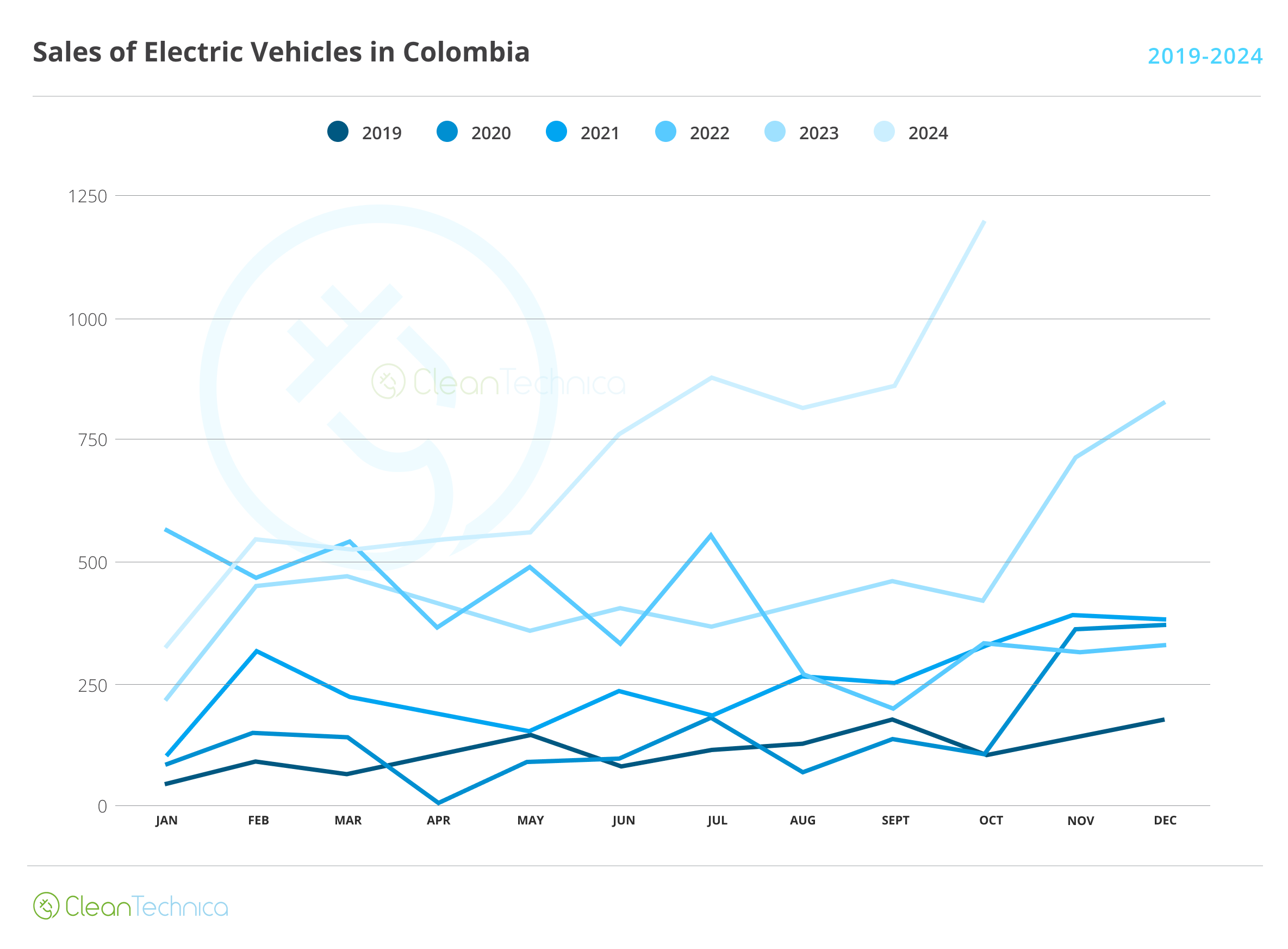Sign up for daily news updates from CleanTechnica on email. Or follow us on Google News!
Scientist Rebellion is composed of thousands of climate researchers, academics, and concerned citizens who are urging people to get involved in the effort to limit global overheating. As part of the COP 28 proceedings, Scientist Rebellion is urging people to sign an open letter pleading for governments to heed the climate science and take meaningful action while there is still time.
The letter has already been signed by more than 1,400 scientists and over 30 IPCC authors, including Wolfgang Cramer, who was part of the team that created the 6th IPCC climate report. That’s the one that warned the world had only 12 years left to fix its overheating problem before tipping over into an irreversible climate slide that would make the Earth uninhabitable by most humans not named Musk, Thiel, or Bezos who would be hiding out in their underground lairs in New Zealand.
Five years have passed since then and the amount of planet heating gases pouring forth into the atmosphere is still rising, making it more urgent than ever to stop extracting and burning fossil fuels. And yet, in an interview yesterday, Saudi energy minister Abdulaziz bin Salman — half brother to supreme leader for life Mohammed bin Salman — said his country would not agree to a statement that calls for the phase down of fossil fuels at the COP 28 summit in Dubai, according to Bloomberg Green.
Since all statements from the conference must be unanimous, Saudi Arabia is giving the world a giant FU as the time for committed action grows shorter. The minister added a snarky little statement at the end of the interview. He called out countries pushing for a phase-out of fossil fuel hypocrites, saying if they actually believed in what they were saying, they should just get on with putting their words into action. “I’m not naming names,” he said. “But those countries who really believe in phasing out and phasing down hydrocarbons — you should come out and put together a plan for how starting 1st of January 2024.”
An Open Letter On Climate Action
It is that sort of intransigence that has the scientific community up in arms. Other online sources are reporting on the letter from Scientist Rebellion, but we think CleanTechnica readers are sophisticated enough to read it for themselves and make up their own minds. So here is the letter in its entirety.
We are a large and diverse group of scientists and academics writing to you from every continent. First, we were concerned. Then, we were alarmed. Now, we are terrified. World leaders have known about the dangers of the climate crisis for decades, but they are not acting accordingly. It is still possible to turn the tide – but we need you.
None of the climate disasters unfolding before our eyes were inevitable. In 1992, virtually all countries promised to avoid “dangerous anthropogenic interference with the climate system”. 27 global UN climate conferences (known as Conferences of the Parties, or COPs) later, carbon emissions are 60% higher than they were in 1992. Our political leaders are catastrophically failing us.
No country is taking action in line with a 1.5°C pathway, the temperature limit aspired to in the Paris Agreement. Some of the world’s richest and highest-emitting countries continue to approve new oil and gas fields, to subsidise fossil fuels with trillions of dollars every year, and to engage in destructive agricultural practices. Rich countries, which have contributed most to the climate crisis, pretend they have decades left to decarbonize, while poor countries bear the brunt of impacts without adequate compensation or help. Those who demand justice and accountability are increasingly being persecuted.
Continuing on this path will mean untold suffering. Large parts of our planet will become uninhabitable, creating hundreds of millions of refugees, unprecedented famines, and severe political conflicts.
We do not have to surrender to this future. But the window of opportunity to secure an alternative, livable future is rapidly closing. The task is enormous: the IPCC notes that “targeting a climate resilient, sustainable world involves fundamental changes to how society functions, including changes to underlying values, worldviews, ideologies, social structures, political and economic systems, and power relationships.”
These deep, structural changes can improve our quality of life. We have the prospect of less polluted environments, healthier food, and more time for the things that matter. Resources can be better distributed – both within countries and internationally – rather than accumulated by the few at the expense of the many.
The solutions are available. What is preventing adequate action is vested interests and entrenched power – institutions, corporations, and wealthy individuals who benefit from the destructive status quo. We need to rapidly phase out fossil fuels, yet COP28 is being chaired by the CEO of an oil company, illustrating the profound influence of this entrenched power.
Overcoming these vested interests requires a large-scale mobilisation of society. It has happened before: without strong social movements, there would be no civil rights, no women’s right to vote, no weekends, no holidays, nor much of the welfare that considerable parts of the world enjoy today. And it can happen again: citizens in the Netherlands recently forced their government to plan a phase-out of fossil fuel subsidies, while people in Ecuador prevented oil extraction in the Amazonian Yasuni National Park.
But we need you. Wherever you are, become a climate advocate or activist. Join or start groups pushing for policies that help secure a better future. Contact groups that are active where you are, find out when they meet and attend their meetings. Find out what kind of engagement suits you best and talk to friends, family, and colleagues to spread the word. If we are to create a livable future, climate action must move from being something that others do to something that we all do.
As scientists and academics, we believe it is now necessary to step up and engage in collective climate action. Like thousands of people around the world, many of us have been advocating and protesting for a better world in a variety of ways, including peaceful civil disobedience.
Join us.
Now that you have read it, are you ready to add your signature? If so, you may do so here. [Note: I have done so and ask you to join me as well.]
Words, Deeds, And Climate Civil Disobedience
The scientists are urging people to participate in acts of civil disobedience to drive home their message. 15 scientists in the Netherlands blocked a coal train while over 100 scientists marched to call for an end to fossil fuel subsidies in Germany. Ten scientists in Sweden pasted scientific papers on government buildings (two were detained and charged), and five scientists were arrested in Norway for walking on skis blocking traffic. In Mexico and Ecuador, scientists protested in front of the United Nations’ buildings, denouncing the absence of international climate justice.
In Spain, scientists joined activists to occupy the European Parliament Office in Barcelona, protesting against Brussels’ inaction on climate. In Greece, scientists and activists demonstrated against the approval of oil and gas extraction. In Switzerland, scientists slowly marched to the parliament in Bern in protest against politicians’ climate delay. Scientists in France, Ecuador, the United States, Peru, Rwanda, Kenya, Uganda, Zimbabwe, Nigeria, and Bolivia are also carrying out events to inform the public about the ongoing climate crisis and to engage them in collective action, according to an email to CleanTechninca from Scientist Rebellion.
But civil disobedience can be fraught with danger, especially today as right wing extremists have come to occupy many positions of power in local governments. Blocking a coal train in the US can get you incarcerated as a terrorist under the US PATRIOT ACT. Are you prepared to spend 40 years in a jail cell for a thought crime?
The UK was once a bastion of civil liberties but no more. Under Section 7 of the newly enacted Public Order Act, its citizens are now banned from any action that “interferes with the use or operation of any key national infrastructure.” The Guardian reports that 630 people have been arrested in the UK in the past month for daring to speak out about the country’s continued embrace of fossil fuels. The protests have ramped up since King Charles gave a speech recently in which he praised new oil and gas leases in the North Sea.
Rachel Payne, 73, told The Guardian she had already been jailed for her part in Just Stop Oil’s campaign during last year’s Cop27 climate talks. She said the law has narrowed what people are able to do as protest. “Last week, I saw them [protesters] get to the top of Whitehall and as soon as they put their feet on the road, swarms of police just arrested them. In this country, it’s supposed to be a free country. [Facilitating] protest is supposed to be a duty of the police — to enable protest — and yet they [the protesters] were not even allowed to be there.”
Graham Mann, a lecturer in atmospheric science at Leeds University said, “My perspective from being a PhD student in the 90s and the urgency of the climate emergency then, the science is very, very clear and has been for a long time. The urgency to decarbonize to reduce emissions has become even greater. So I can understand young people taking these actions.”
A spokesperson for Climate Action Support Pathway, which provides advice to those considering taking action said, “This was the first real test for these new section 7 powers, and it became quickly clear that the police were going to use them readily. We changed the emphasis of our advice to those considering taking part as a result, because section 7 carries a higher maximum penalty of a year in prison and people need to be making informed choices about whether they want to take action or not.”
Such laws, of course, are rammed through national and state legislatures by well funded fossil fuel lobbying campaigns. The industry is not content to destroy the Earth for the sake of profit, it wants to incarcerate anyone who opposes its greed. So far, the oil oligarchs are winning and the Earth and its climate are losing. There is little reason to believe COP 28 will do much if anything to change that dynamic.
Have a tip for CleanTechnica? Want to advertise? Want to suggest a guest for our CleanTech Talk podcast? Contact us here.
CleanTechnica Holiday Wish Book
Our Latest EVObsession Video
I don’t like paywalls. You don’t like paywalls. Who likes paywalls? Here at CleanTechnica, we implemented a limited paywall for a while, but it always felt wrong — and it was always tough to decide what we should put behind there. In theory, your most exclusive and best content goes behind a paywall. But then fewer people read it!! So, we’ve decided to completely nix paywalls here at CleanTechnica. But…
Thank you!
CleanTechnica uses affiliate links. See our policy here.




